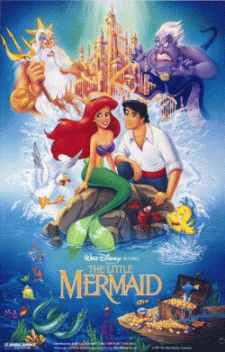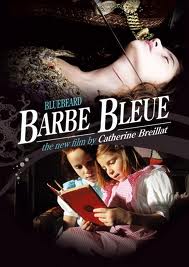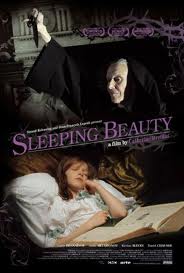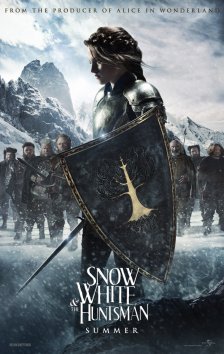Geoff Ryman’s WAS on The Slate Book Review
July 11, 2014 § 1 Comment
I have another review up this afternoon on Slate, of Geoff Ryman’s beautiful and raw 1992 novel WAS. WAS is inspired by The Wizard of Oz, but delves into dark territory such as abuse, AIDS, and misplaced nostalgia. I actually wrote the review over a year ago, and am happy to see it finally up. WAS is being reissued by Small Beer Press, a truly excellent fantasy press that also publishes the review Lady Churchill’s Rosebud Wristlet, and is helmed by Kelly Link and Gavin Grant. Check out the review, check out Small Beer, check out the book — it’s all good stuff. And thanks for reading!
“‘The Little Mermaid’ Molded My Idea of Love,” and Other Terrifying Inanities
February 22, 2012 § 4 Comments
This post has been in the making for two months. At first, I didn’t write it because it seemed petty—but the thing that started this long indecision, the errant article published online by someone who clearly just doesn’t know any better, has stuck with me for weeks, and I’ve figured out, finally, why.
Here’s what started it: this article, written by no one I’ve ever heard of on a site I am not familiar with: http://globalgrind.com/node/821245
Looks to be a pretty cheaply written entertainment site, somehow affiliated with TMZ and the like. The article in question is written by someone named Lindsey P, who is very upset about Julia Leigh’s new film, Sleeping Beauty, which casts Emily Browning as a sex worker who enters a drug-induced sleep every night, only to have men do what they will with her after she’s passed out. Nobody is trying to pass this off as rated G material, but Lindsey P is up in arms nonetheless:
I think it’s pretty ridiculous that there are directors out there who want to add these dark and gloomy tones to classic happy Disney movies. Do they not realize that there will be little girls and maybe even boys out there who want to see their favorite princess have the overly joyful happy ending with the handsome prince on their arm? At this point, no childhood memory is safe!
Yikes.
Lindsey P’s argument is that filmmakers should at least re-name these “twisted and gloomy” films, so that poor, naïve children won’t get fooled thinking that they’re the “classic Disney princess movies” that we all KNOW are the originals. Those crazy filmmakers! What do they think they’re doing, using Disney stories this way? Oh woe, woe is Lindsey P.
And upon my first read, I just laughed it off. (Well, laughed it off and left a comment, because we all have our weaker moments, don’t we?) This is probably some high school student, trying to write a persuasive piece for the first time, and somebody showed her how to upload it to a site, I thought. Who cares?
But as I tried to go on about my life in the following weeks, the article kept popping into my head, aggravating and infuriating me. I found myself wanting to throttle Lindsey P, to give her a good talking to. Why? I kept asking myself. So someone wrote a badly written, conservative essay and it’s online. If that gets you every time, you’ll be dead of stress before you hit 30.
But it kept coming back, and each time I realized that I was thinking about this article, I’d get angrier and angrier. Finally I had to ask myself: what is it about this article in particular, this girl’s problem with fairy tales that has your goat held so firmly by the leg?
When I went back and read over the offending piece again, I found what had stuck in my craw, so to speak. Here’s the choice tidbit:
 When I was a young girl, I looked towards fairy tales to mold my idea of love. They were what I wished for myself when it came to falling in love and learning about life… I wanted to be like Ariel, not only so I could swim and have cute fishes and a lobster as friends, but so I could meet a handsome young prince to sweep me off my feet. What girl wouldn’t want a love like that?
When I was a young girl, I looked towards fairy tales to mold my idea of love. They were what I wished for myself when it came to falling in love and learning about life… I wanted to be like Ariel, not only so I could swim and have cute fishes and a lobster as friends, but so I could meet a handsome young prince to sweep me off my feet. What girl wouldn’t want a love like that?
You guys.
She’s saying that The Little Mermaid taught her everything she wants to know about love and life.
There is no hope left for humanity. « Read the rest of this entry »
Stepping Into the Story: Catherine Breillat’s Bluebeard and The Sleeping Beauty
January 20, 2012 § Leave a comment
Part One: Bluebeard
 Bizarre, enchanting, sparsely told yet thematically intense. Bluebeard and The Sleeping Beauty, parts one and two of a triptych of fairy tale films (Beauty and the Beast will be third) by director Catherine Breillat are, for my money, touchstones, criterions, truly exceptional examples of what a fairy tale adaptation can be.
Bizarre, enchanting, sparsely told yet thematically intense. Bluebeard and The Sleeping Beauty, parts one and two of a triptych of fairy tale films (Beauty and the Beast will be third) by director Catherine Breillat are, for my money, touchstones, criterions, truly exceptional examples of what a fairy tale adaptation can be.
In other words, they’re pretty boss.
As entertainment for a casual viewer, let me tell you, these two are flawed. Breillat doesn’t allow her films to be entirely self-explanatory, and believe me, I’ve had quite a time trying to parse out a concise thesis from the myriad impressions swimming through my brain. Even for the more discerning film viewer, there are flaws: Breillat espouses  some narrative devices that are just, to put it kindly, awkward as all-get-out, and thematic explorations that take at least two more viewings to get even a handle on. In this review, I’m not going to try and argue that these films are perfect—but that for a fairy tale lover (and you know what I mean—we’re not talking Disney here, ever), these are required viewing.
some narrative devices that are just, to put it kindly, awkward as all-get-out, and thematic explorations that take at least two more viewings to get even a handle on. In this review, I’m not going to try and argue that these films are perfect—but that for a fairy tale lover (and you know what I mean—we’re not talking Disney here, ever), these are required viewing.
Though I can see these two films working thematically in tandem, I’m going to start by talking about each separately, beginning with Bluebeard.
Bluebeard is deceptive.
The People’s Obsession with Snow White, and Why the Queen Really is the Coolest of Them All
November 21, 2011 § 4 Comments
There are times when—in the film industry, the world of community and high school theater, mass market paperback production—I wish I could convince a bunch of people in the same gig to get together, just once, and discuss their season’s offerings so no one steps on someone else’s toes. There are only so many times one can see Zombie Prom in a fifty mile radius. So it is with this year’s apparent obsession with Snow White, one of our culture’s most recognizable and beloved fairy tales. New spins! That’s what the people want, and there’s clearly no problem with putting several new spins on the same tale out into the world at once.
It could be, though, as Obama would say, a teachable moment, one for the world of casual fairy tale lovers, in which they don’t have to accept that Disney’s is the only version for them. This is what will separate the men from the boys, the pretty pretty princesses from the Grimm enthusiasts, for now we are faced with—ta da—a choice. A smorgasbord of Snow Whites, all set out at once.
That’s not t o say that any of our current three examples—ABC’s Once Upon a Time (which has about as much to do with the fairy tale of “Snow White” as my cat does with the Oxford English Dictionary), Universal Pictures’ Snow White and the Huntsman, and Studio Canal’s Mirror Mirror, directed by Tarsem Singh of The Fall and The Cell fame—are destined to satisfy anyone of either camp (least of all the snot-nosed academics like myself), but we do at least get to know who likes colorful costumes and dumb jokes and who likes mirrors MELTING OFF OF FREAKING WALLS AND TURNING INTO CREEPTASTIC PROPHETS.
o say that any of our current three examples—ABC’s Once Upon a Time (which has about as much to do with the fairy tale of “Snow White” as my cat does with the Oxford English Dictionary), Universal Pictures’ Snow White and the Huntsman, and Studio Canal’s Mirror Mirror, directed by Tarsem Singh of The Fall and The Cell fame—are destined to satisfy anyone of either camp (least of all the snot-nosed academics like myself), but we do at least get to know who likes colorful costumes and dumb jokes and who likes mirrors MELTING OFF OF FREAKING WALLS AND TURNING INTO CREEPTASTIC PROPHETS.
In case you were in any doubt, I am in camp two.
But as neither of the two films have come out yet, and you’ve already heard my rant about Once Upon a Time, let’s pause, and take a moment to prepare ourselves, by recalling what “Snow White,” according to the folks who aren’t Disney, is really about. « Read the rest of this entry »

